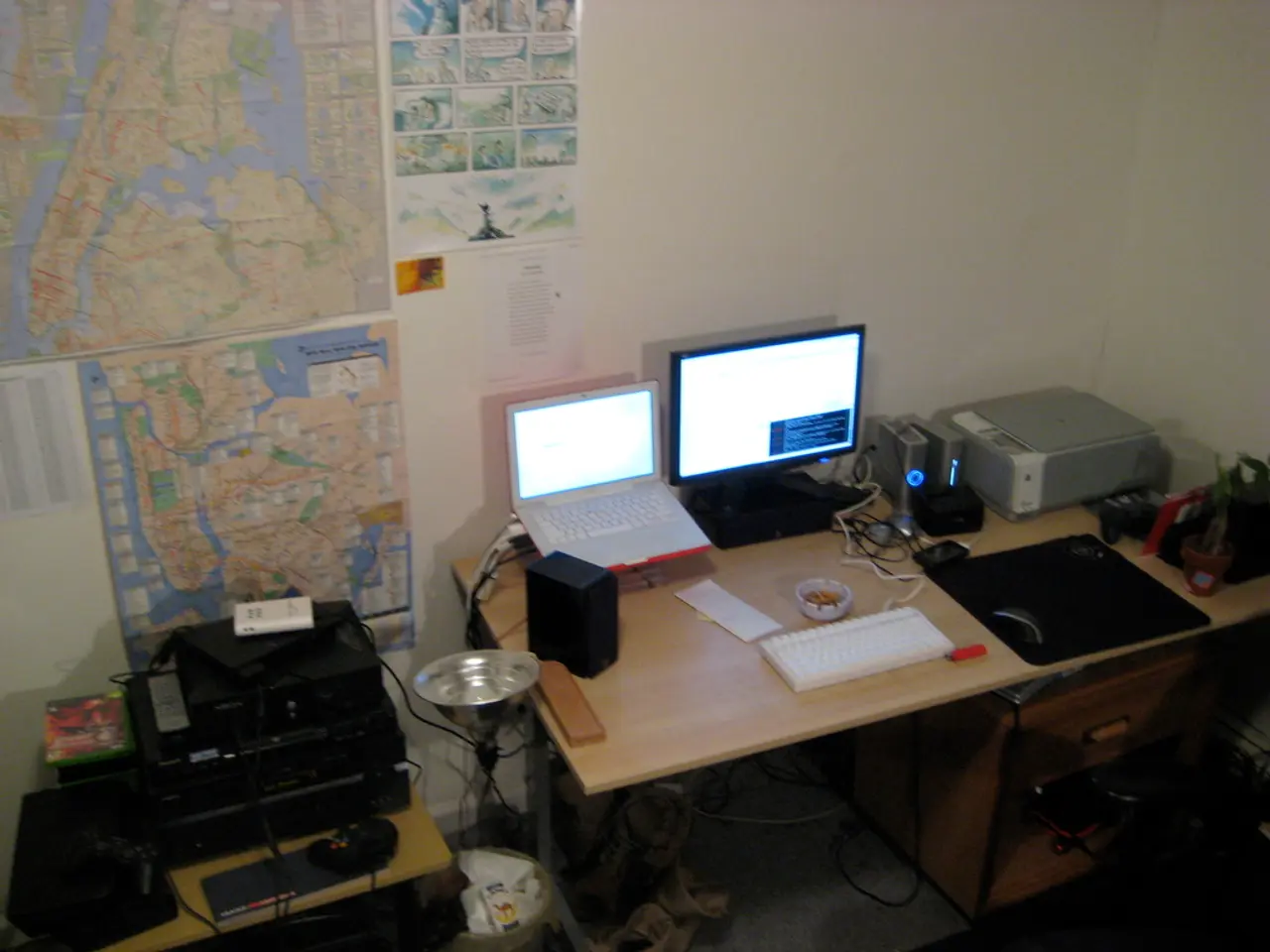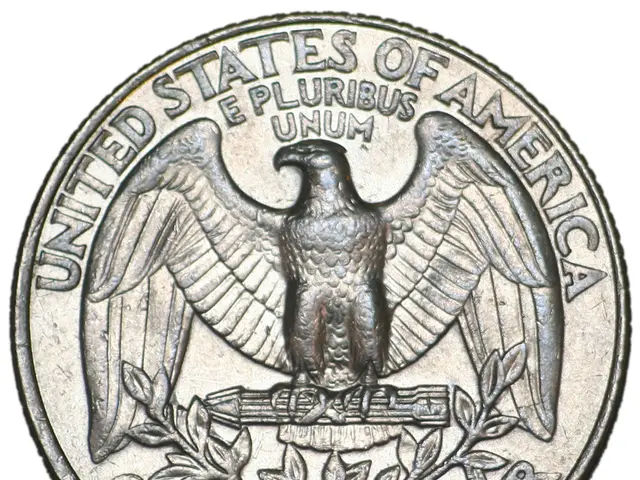Taiwan Semiconductor dismissed apprehensions about tariffs
Taiwan Semiconductor Manufacturing Company (TSMC) continues to outshine its peers in the global semiconductor industry, holding a dominant and unique position. With an exceptional growth record and technological leadership, TSMC has delivered an average annual return of 18.59% over the past 20 years, outperforming the broader market by almost 10%.
TSMC's market capitalization stands at around $1.25 trillion, making it the world's 9th most valuable company and the largest independent contract chip manufacturer globally. The company's dominance is evident in its leadership in advanced chip manufacturing at 3nm and 2nm process nodes, commanding 64% of the global contract chip market.
TSMC's preferred status among major tech companies specializing in AI accelerators, GPUs, and custom silicon has driven massive demand in rapidly growing sectors like AI and data centers. In fact, AI-related revenue tripled in 2024 and is expected to double again in 2025 for TSMC, highlighting its critical role in cutting-edge technology supply chains.
TSMC's ability to sustain above-market growth is attributed to strategic investments in next-generation fabs, such as a $165 billion facility in the U.S., which partially shields the company from potential full tariffs on semiconductors. The company's integration with the U.S. CHIPS Act ecosystem also fosters private investment and strengthens geopolitical positioning.
Interestingly, TSMC's stock is trading at nearly a market-average forward price-to-earnings (P/E) ratio, suggesting a reasonable price for its projected growth. TSMC's CEO, C.C. Wei, has stated that they have not seen any change in customer behavior regarding tariffs.
TSMC is a critical partner for tech giants like Nvidia and Apple, with semiconductors currently exempt from all reciprocal tariffs. To further avoid tariffs, TSMC is accelerating the build-out of its U.S. chip production facilities in Arizona, allowing U.S. clients to avoid any tariffs on foreign goods produced by TSMC.
However, investors need to be cautious about drawing conclusions about how tariffs are being applied to one industry versus another. While tariffs and geopolitical factors pose risks to various industries, Taiwan's semiconductor sector—and TSMC particularly—have exhibited resilience due to their critical global role and ongoing expansion.
In conclusion, TSMC’s unique market leadership, advanced technology focus, and strategic global investments enable it to maintain superior growth compared to other semiconductor companies, positioning it as a centerpiece in the global semiconductor supply chain even as tariffs and geopolitical shifts challenge other industries.
References
- Taiwan Semiconductor Manufacturing Company (TSMC) Q2 2025 Earnings Call Transcript
- TSMC to Invest $100 Billion in U.S. Chip Facility
- Forbes Global 2000 Rankings 2021
- Taiwan's Economy: A Dependence on Semiconductors
- TSMC Q2 2025 Earnings: Revenue Breakdown by Process Node
- The exceptional growth record and technological leadership of Taiwan Semiconductor Manufacturing Company (TSMC) have made it a significant player in both the finance and business sectors, with an average annual return of 18.59% over the past 20 years that outperforms the broader market by almost 10%.
- TSMC's dominance in the semiconductor industry extends to cutting-edge technology supply chains, as evidenced by its leadership in advanced chip manufacturing at 3nm and 2nm process nodes, commanding 64% of the global contract chip market.
- The strategic investments TSMC has made in next-generation fabs, such as a $165 billion facility in the U.S., not only contribute to its ongoing expansion but also help shield the company from potential full tariffs on semiconductors, demonstrating the critical role of finance in technology-oriented businesses.




